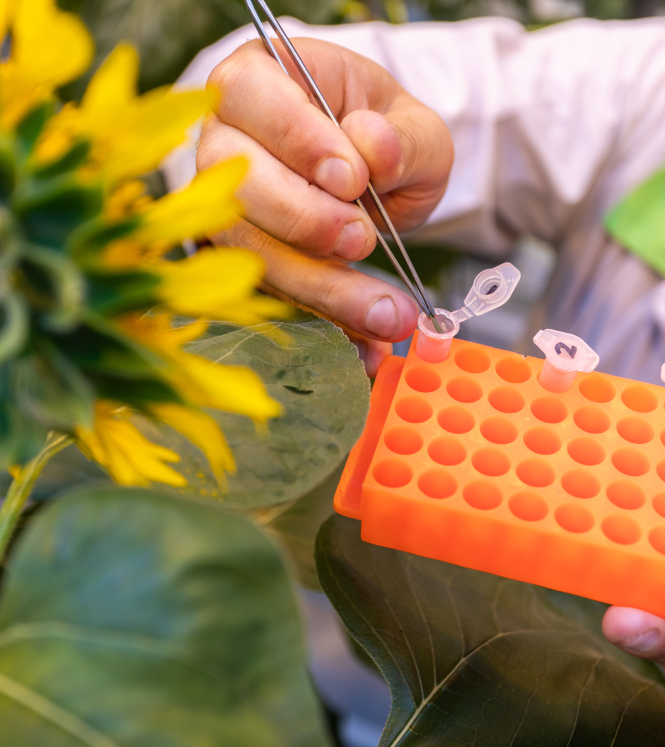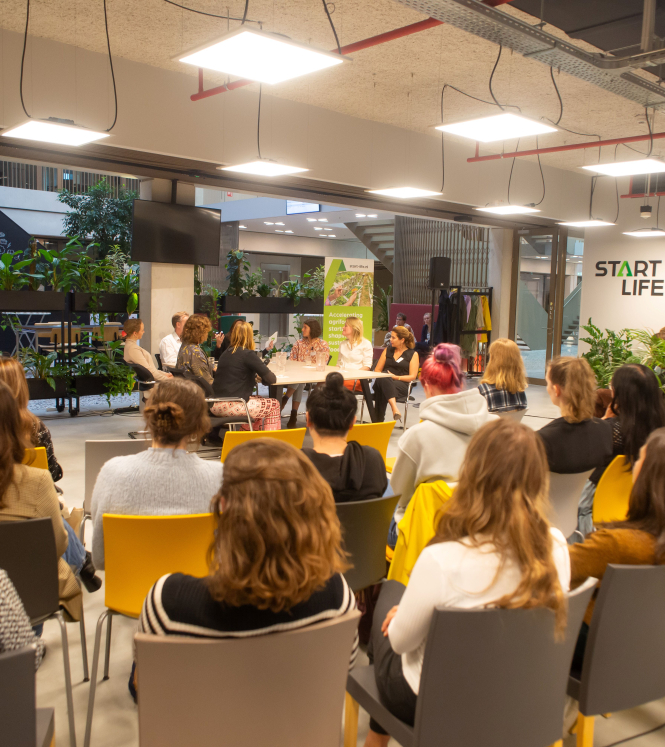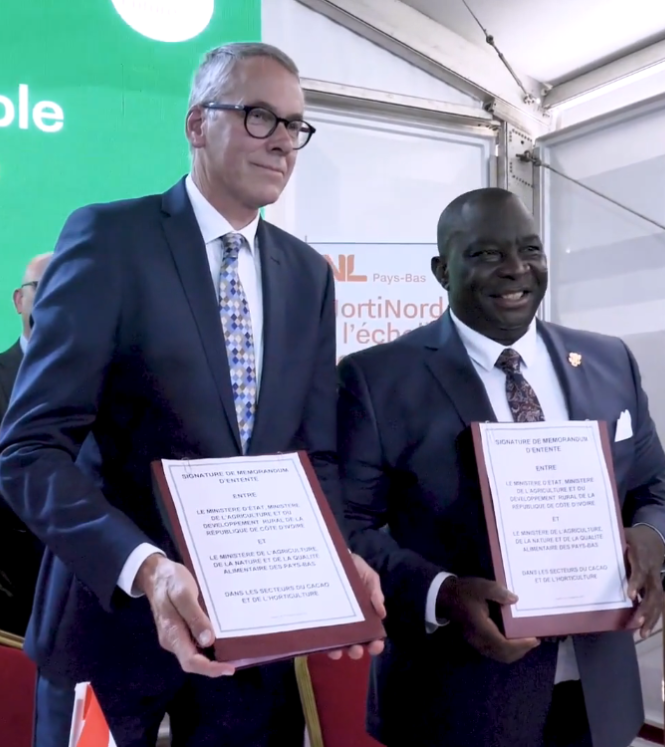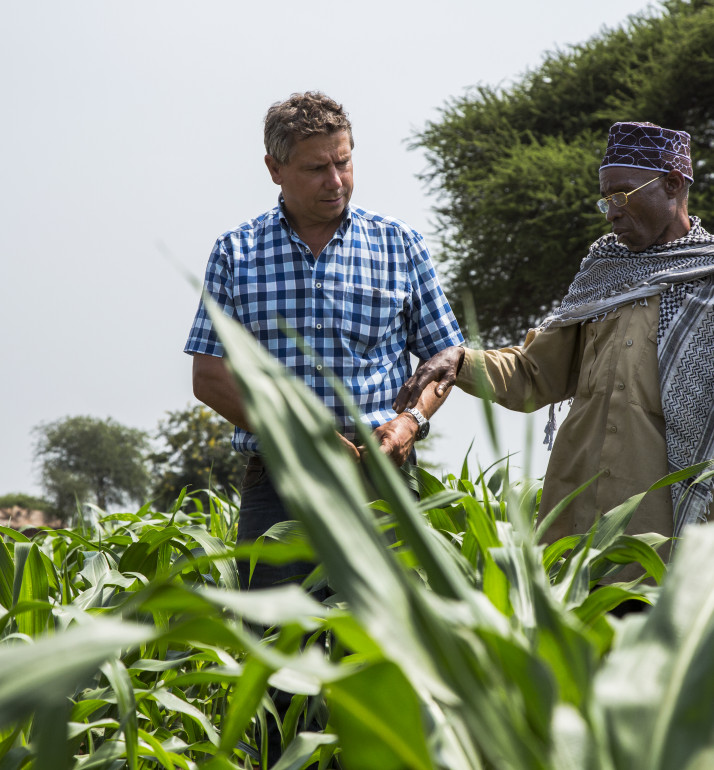

Ensuring a sustainable future through plant health
In a world faced with the dual challenges of feeding a growing population and mitigating the impacts of climate change, the importance of healthy plants cannot be overstated. Plants form the foundation of life on Earth, offering essential ecosystem services, ensuring food security, and helping to maintain biodiversity.
As international governments and knowledge institutes seek sustainable solutions, the Netherlands stands out as a major player in the global plant trade. Through rigorous regulations and proactive policies, the Netherlands is committed to safeguarding plant health and facilitating sustainable trade.
The urgency for sustainable solutions
The urgency for sustainable agriculture has never been greater. By 2050, the global population is projected to reach over 9 billion people, resulting in a 50% increase in demand of food production. Additionally, the impacts of climate change threaten the very foundation of agriculture, forestry, and ecosystems, increasing pest risks and disrupting the balance of natural environments.
Healthy plants play a crucial role in combating climate change by sequestering carbon, supporting biodiversity, and moderating local temperatures. As the world faces these challenges, innovative solutions are essential to ensure the health of plants and secure a sustainable future.
The Netherlands’ ambition in plant health and sustainable trade
The Netherlands is a key player in the global trade of plants, recognised for its expertise and commitment to plant health. By strictly adhering to the International Panel on Climate Change and European Union's Plant Health Directives, the Netherlands ensures, through bilateral partnerships, that all imported and exported plants meet high standards. This includes performing checks on the requirements of phytosanitary certificates for imported plants, conducting risk-based inspections upon arrival, and enforcing treatments or destruction if harmful plant diseases or pests are found.
The Netherlands Food and Consumer Product Safety Authority (NVWA) is the backbone of the country's National Plant Protection Organisation (NPPO), ensuring the safe and sustainable trade of plants. Through the issuance of phytosanitary certificates for exported plants and robust monitoring and surveillance of plant diseases and pests within the country, the NVWA plays a vital role in protecting the health of global agriculture and trade.
The NVWA aims to protect plant health throughout the entire plant production and trade chain as well as in natural areas and public spaces. We contribute to food security, native biodiversity and a vital plant sector. We achieve this by preventing the entry of harmful plant diseases or pests, controlling or managing them when found within the Netherlands.
NVWA: what they do and why it matters
The NVWA's commitment to plant health extends beyond national borders, as it collaborates with other EU member states and international organisations to share information and best practices. Participation in the EU Standing Committee on Plants, Animals, Food and Feed (SCOPAFF) and the European Plant Health Network (EPHN) facilitates communication on plant health issues and emerging threats, fostering a coordinated response. Experts from the NVWA are well represented in working groups and expert panels from the European Plant Protection Organisation (EPPO). The NVWA is leading two European reference laboratories on bacteriology and virology (EURL) . These labs provide a broad knowledge of harmful organisms and crops as well as classical diagnostic techniques, and provide uniform and reliable analysis results in the EU. The NVWA is also involved in multiple Euphresco projects, creating and sharing knowledge regarding plant health issues.
The NVWA’s involvement in joint projects, expert groups, and international conferences ensures that knowledge and strategies are shared across borders. By promptly sharing early warnings about emerging plant health threats and best practices for integrated pest control, the NVWA strengthens the global network of plant health authorities.
Partnering up towards a sustainable future
The Netherlands’ comprehensive approach to plant health underscores the critical role of collaboration and innovation in securing a sustainable future. Climate-smart pest management, international cooperation, and capacity-building efforts are essential to ensure that plant health positively contributes to climate change mitigation and agriculture.
Regulatory measures, including phytosanitary regulations, play a pivotal role in controlling the movement of pests through trade and passenger movements. By implementing best agricultural practices and fostering interdisciplinary approaches, the Netherlands and its partners are laying the foundation for resilient and sustainable food systems.
In conclusion, the Netherlands’ commitment to plant health serves as an examples in the global quest for sustainable solutions. By working together with international governments and knowledge institutes, the Netherlands aims to shape a brighter, more sustainable future for generations to come. Let us embrace this vision and continue our collective efforts toward a healthier, more resilient planet.
-

-

Rethinking protein for a greener future
Read more -

-


